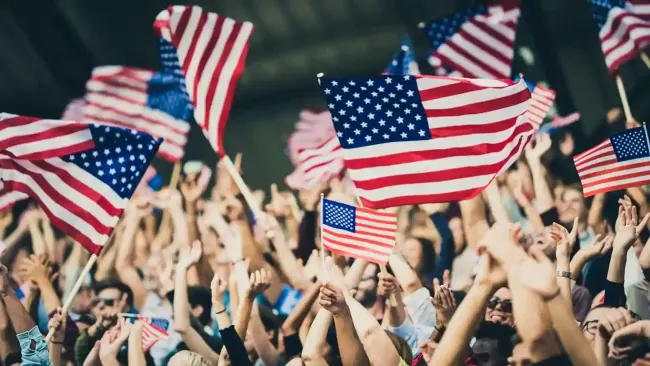
How to Apply: Student F-1 Visa
Complete our user-friendly online application in just 20 minutes, or feel free to take breaks and return at your convenience.
Move closer to an approved visa with our team of iVisa Experts, who not only review your answers but also provide you with the necessary tools to prepare.
Make use of our feedback and free templates to confidently submit accurate information, and experience a surprisingly stress-free process!
Once government-approved, your visa will be ready for collection, marking the start of your travels.
How to Apply: Embassy Registration
Complete our easy online application and pay with credit card or PayPal
Your embassy will assist you if an emergency (eg. Natural disasters, civil unrest, etc) occur
Why Register with the Embassy
Required Information to Apply
Once You Have Registered With Your Embassy Or Consulate, You Will Need To Update Your Data If:
- your contact details change,
- your civil status changes,
- you are going back to your home country.
Learn More: Student F-1 Visa
What you need to know
-
If you plan to study in the United States, you need a United States Student Visa.
-
The type of student visa (F visa or M visa) depends on your course of study and the type of school.
-
Your maximum stay depends on the entire duration of the study.
-
You can apply up to 365 days before your course starts, but entry to the United States is limited to 30 days prior to the start date with a 60-day post-graduation grace period allowing travel but prohibiting work in the U.S.
-
Allowed activities: Attend various educational institutions, work up to 20 hours per week while studying and work full-time during annual breaks.
-
You may need to attend a mandatory appointment, unless you’re 13 and younger or 80 and older, but our experts handle the scheduling. All you need to do is approve the date and get your documents ready.
Apply for the United States Student Visa from the comfort of your home!
Planning to study abroad? Simplify the process with us!
Our 50% shorter application form and expert guidance ensure you get your visa on time and without having to navigate the complexities alone. Say goodbye to paperwork hassles and hello to a seamless journey.
What is the United States Student Visa?
The United States Student visa allows you to study in the United States. There are three types of visas you can get:
F-1 visas for full-time students. F-2 visas for dependents (spouse and unmarried children under 21) of F-1 visa holders. F-3 visas for Mexican and Canadian students commuting across the border to attend school in the US.
To apply for either visa your passport must be valid for 6 months after the visa expiry, and have 2 blank pages.
How long is the United States Student Visa valid for?
The F-1 visa, valid for up to 5 years with multiple entries, and covers the entire study duration. Entry is permitted 30 days before studies begin, with a 60-day post-graduation grace period allowing travel but prohibiting work in the U.S.
What is the application timeline and processing duration for the U.S. Student Visa?
Students with F and M visas can secure them up to 365 days before their course starts, but entry to the United States is restricted to within 30 days before the course commencement date.
What can I do with the United States Student Visa?
With this visa, you’re allowed to;
- Attend various educational institutions: university, high school, private elementary school, seminary, conservatory.
- Take part in a language training program.
- Work up to 20 hours per week while studying.
- Work full-time during annual breaks.
What can’t I do with the United States Student Visa?
Keep in mind that you can’t;
- Take part in a short course that doesn't count towards a degree.
How to apply with iVisa?
- Step 1: Fill out the first section of the visa application form.
- Step 2. Pay the processing and visa fees securely online using a debit or credit card, Venmo, or PayPal.
- Step 3.After payment is done, you’ll need to complete the remaining sections of your application form with the help of our manual guide.
- Step 4: Once we review your application, we’ll submit it to the government and let you know if you need to attend a mandatory appointment. Don’t worry if you do, we’ll guide you with what to do, what to avoid, and what to bring when the time comes.
Who needs to apply for the United States Student Visa?
If you’re wanting to study in the United States, you’ll have to apply for a student visa.
To see if you’re eligible, go to the iVisa website.
Benefits of getting your Visa with iVisa
-
Easy application: Complete our online application in just 20 minutes with step-by-step guidance.
-
Flexible pace: Boost your approval odds by taking your time; save and return whenever convenient.
-
Government-compliant support: We assist you through the entire process, ensuring compliance with government rules.
-
Comprehensive guidance: Get step-by-step guides, tips for tricky questions, a document checklist, and interview preparation support if needed.
Still curious? Read our reviews!
What will my United States Student Visa cost me?
- The government fee is dependent on your nationality, however there is a standard visa fee of $185.00 and a SEVIS I-901 fee of $350.00.
Can I extend my United States Student Visa?
Unfortunately not. Your visa is only valid for the duration of your studies, with an additional 60-day grace period following your graduation.
Have you got more questions?
Reach out to our customer support team or email us at [email protected] for 24/7 assistance. Alternatively, you’re welcome to visit our FAQs below.
Questions?
What are iVisa's accreditations and recognitions?
How long does it take to apply for my United States Student Visa?
What documents do I need to apply for the United States Student Visa?
- Color photo, taken in the last 6 months.
- Passport scan.
Who has to attend an appointment?
Most applicants will need to attend a mandatory appointment at the U.S. embassy of their country
We recommend applying early for your visa as the appointment wait times vary by location, season, and visa category.
What document will I need to bring to the appointment (if applicable)?
If you need to attend an appointment, we'll guide you through every step. Required documents usually include:
-
Passport: Ensure your passport is valid for at least six months beyond your intended stay in the United States.
-
Application, Form DS-160, form 1-20: Print and provide the confirmation page for Form DS-160.
-
Sevis I-901 receipt: Print and bring the receipt for Sevis I-901.
-
Accommodation confirmation and their contact information.
-
Detailed travel itinerary. Download our free template!
-
Application fee payment receipt: If required, bring the payment receipt for the application fee.
-
Photo: Bring a printed photo following the specified format in the photograph requirements
-
Proof of financial support: Such as copies of bank statements or stock certificates that demonstrate that you have enough funds to support yourself and cover your course expenses. The required amount may vary based on your individual circumstances.
The consular officer may ask for evidence related to:
-
Academic preparation: Provide transcripts, diplomas, degrees, or certificates from the schools you attended. Include any standardized test scores required by your U.S. school.
-
Departure tickets: Demonstrate your intent to leave the United States after completing your course of study.
-
Acceptance letter: A letter from the United States institution confirming your acceptance to be able to study.
Who can I talk to if I have more questions?
Where can I read more?
- US Tourist Visa for the citizens of the Philippines
- US B1B2 Visa for Citizens of Jamaica
- US B1/B2 Visa for Dominican Republic citizens
- US Visa for french citizens
- US Visa for Malaysian citizens
- Can I expedite my US B1/B2 Visa appointment?
- US Green Card Lottery for Irish citizens
- US B1B2 Visa guide for Colombia citizens
- How to apply for the Green Card Lottery for Indian citizens
- Green Card Lottery: Entry dates & deadlines
- See All
- iVisa is NOT affiliated with any government agency. This site does not provide legal advice and we are not a law firm. None of our customer service representatives are lawyers and they also do not provide legal advice. We are a private, internet-based travel and immigration consultancy provider dedicated to helping individuals travel around the world. You may apply by yourself directly on the various government websites. The source of information: https://www.uscis.gov/

 India Visa
India Visa
 Turkey Visa
Turkey Visa
 United States Visa
United States Visa
 Australia Visa
Australia Visa
 Colombia Visa
Colombia Visa
 New Zealand Visa
New Zealand Visa
 China Visa
China Visa
 Egypt Visa
Egypt Visa
 Vietnam Visa
Vietnam Visa
 Indonesia Visa
Indonesia Visa
 UK Passport Renewal
UK Passport Renewal
 CA Passport Renewal
CA Passport Renewal
 IE Passport Renewal
IE Passport Renewal


